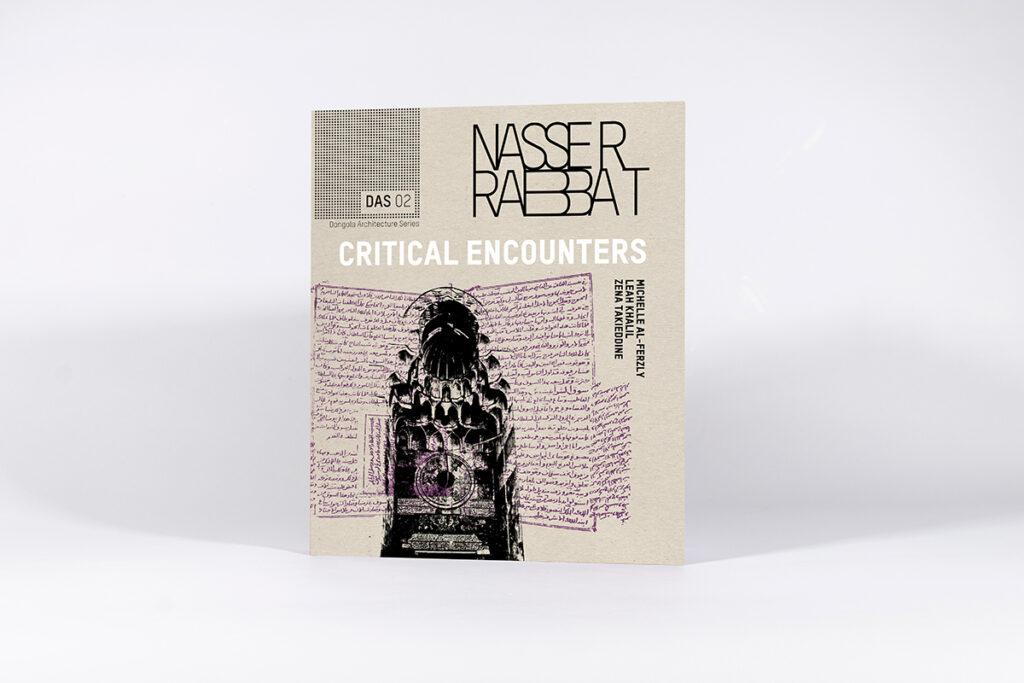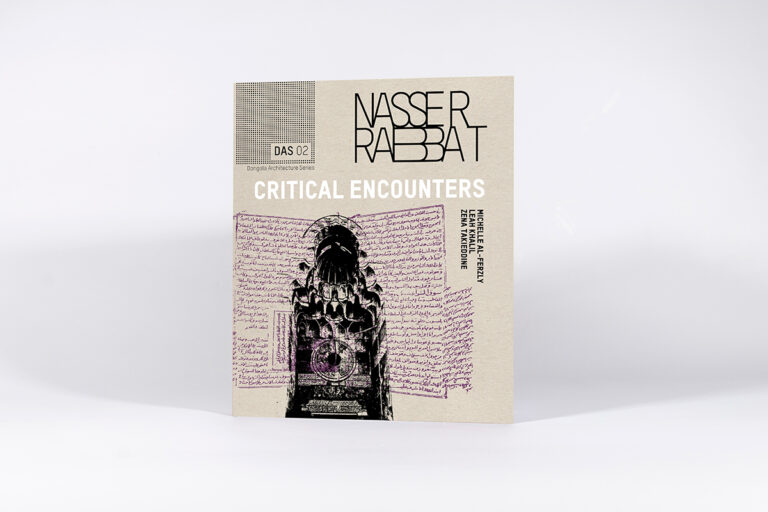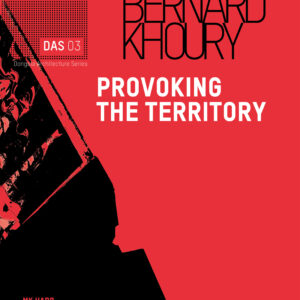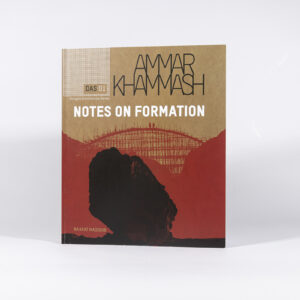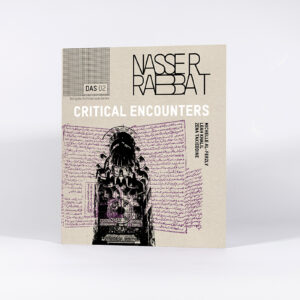About Dongola Architecture Series
The Dongola Architecture Series (DAS) is a biannual book series that offers unique insight into Arab culture through the lens of its most iconic contemporary architects, and attempts to grapple with our environment’s past and present to better inform how we design our future.
Each issue focuses on a specific architect’s formation and processes, and on their contributions to regional knowledge production. DAS is not an endorsement of style, but rather of methodology, affect, and synchronicity with the world. It is an investigation of the ethics, politics, positioning, and decision-making processes of the people tasked to analyze, build, and narrate the world we live in.
Nasser Rabbat
Nasser Rabbat is a Professor and Director of the Aga Khan Program for Islamic Architecture at MIT. An architect and a historian, his scholarly interests include the history and historiography of Islamic architecture, art, and cultures, urban history, and post-colonial criticism. He teaches lecture courses Islamic architecture and seminars on the history of Islamic urbanism and contemporary cities, orientalism, and more. In his research and teaching he presents architecture in ways that illuminate its interaction with culture and society and stress the role of human agency in shaping that interplay. Professor Rabbat has published more than 80 scholarly articles and book sections in English, Arabic, and French. Rabbat worked as an architect in Los Angeles and Damascus. Among his fellowships are, The Radcliffe Institute for Advanced Study Fellowship (2011-12), The American Research Center in Egypt Fellowships (2007-08, 1999-00 and 1988-89), the Chaire de l’Institut du Monde Arabe (2003), and The J. Paul Getty Postdoctoral Fellowship (1993-94).
Raafat Majzoub | Architecture Series Editor-in-chief
Michelle Al-Ferzly | Author
Michelle Al-Ferzly holds a PhD in the History of Art at the University of Michigan, Ann Arbor, and is a specialist of medieval Islamic Art and Architecture from the Eastern Mediterranean and North Africa. Currently, Michelle is a Research Associate at the Metropolitan Museum of Art in New York, and previously served as a curatorial assistant at the Aga Khan Museum in Toronto. She is the co-author of the 2021 volume, City in the Desert, Revisited: Oleg Grabar at Qasr al-Hayr al-Sharqi, 1964-971. Michelle holds a B.A. from Wellesley College and an M.A. from Bryn Mawr College. Her research has been supported by the Fulbright Program, the Social Science Research Council, and the Barakat Trust.
Leah Khalil | Author
Leah Khalil is a writer and editor whose passion lies at the intersection of SWANA history and law. She is pursuing her J.D at New York University School of Law, and has a BA in the Post-Colonial Context of the Middle East from New York University (US, 2019), was featured on the West 4th Street Review, and writes and edits content ranging from legal documents to non-fiction manuscripts. Her work explores the intersectional dimensions of decolonization, as well as the creation of counter-narratives and imagined alternatives to the dominant systems that emerge from the Global South.
Zena Takieddine | Author
Zena Takieddine is an enthusiast of Islamic art history and contemporary Arab art. She collaborates with various art platforms and publications emerging from the Arab region. She has an MA in Islamic Art & Archaeology from SOAS (UK, 2004) with distinction, a Diploma in Art’s & Antiques Connoisseurship from Sotheby’s Institute in London (UK, 2001) and a BA in History from (AUB, 2000) with distinction. Originally from Damascus, Syria, she has been based in Beirut since 2011. Her interests include: early Arabic Epigraphy, illustrated Arabic manuscripts, transmission of knowledge and cultural exchange, independent contemporary art, somatic art. She was the Editorial Coordinator for the MWNF publication on The Ayyubid Era: Art & Architecture from Medieval Syria (2015) and the Communication & Development Manager from the Arab Fund for Arts and Culture (2011 – 2015)
Editor-in-chief
Raafat Majzoub
Text
Michelle Al-Ferzly - Lèah Khalil - Zena Takieddine
Art Director Reza Abedini
Graphic Design
Karim Farah
Project Manager
Zeina Chamseddine
Researcher
Meriam Soltan
Copyeditor
Sasha Baril
Printing
Anis Commercial Printing Press
Binding
Fouad Baayno BookBindery
Hard cover Binding
Dimensions
23 x 28 cm
The book is distributed in Europe and Internationally through Les Presses du Réel
